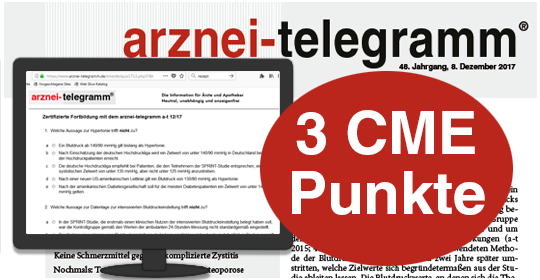Translation of a-t 2023; 54: 6
IN BRIEF
Coumarin anticoagulants superior to new oral anticoagulants in patients with antiphospholipid syndrome
Antiphospholipid syndrome is a rare autoimmune disease (which often but not exclusively occurs in combination with other autoimmune diseases such as lupus erythematosus) in which autoantibodies against various phospholipids (e.g. cardiolipin, lupus anticoagulant and beta-2 glycoprotein I) occur that lead to systemic inflammatory reactions and a tendency to blood clotting by means of complex mechanisms. The clinical picture is characterised by haemolytic anaemia, thrombocytopenia and above all recurrent arterial or venous thromboses that affect the most varied of organs and can lead to complications during pregnancy. Lifelong anticoagulation is needed following clinical events and documentation of antibodies at least two times. For a long time, coumarin anticoagulants such as phenprocoumon (MARCUMAR, generics) were the drugs of choice for this. An overview of the literature and guidelines, however, recently came to the conclusion that for some patients (e.g. those who do not have a history of arterial thrombosis and antibodies that are only simple or double positive) new oral anticoagulants (NOACs) could represent an alternative (1). Currently a systematic overview with a meta-analysis of four randomised studies including 474 patients (68% women) with antiphospholipid syndrome and a history of arterial (28%) and/or venous (82%) thromboses is arguing against considerations of this type: arterial thromboembolisms are more than five times as common overall in patients treated with NOACs than in those treated with coumarins (odds ratio [OR] 5.43; 95% confidence interval [CI] 1.87-15.75), and the risk of stroke is increased more than tenfold (OR 10.74; 95% CI 2.29-50.38). There are no significant differences in terms of heart attacks and the frequency of venous thromboembolisms and severe bleeding. Antibody status (three times positive [57%] or not) and history (arterial thrombosis or not) have no impact on the result (2). An accompanying editorial requests the relevant guidelines to adjust their recommendations and to advise all patients with antiphospholipid syndrome and a history of arterial or venous thrombosis against taking NOACs. The authors recommend that those patients with a history of thrombosis who are already being treated with NOACs be switched to coumarin as a matter of urgency (3).
| (M = meta-analysis) | ||
| 1 | PASTORI, D. et al.: Front. Cardiovasc. Med. 2021; 8: 715878 (12 pages) | |
| M | 2 | KHAIRANI, C.D. et al.: J. Am. Coll. Cardiol. 2023; 81: 16-30 |
| 3 | CROWTHER, M.A. et al.: J. Am. Coll. Cardiol. 2023; 81: 31-33 |
© arznei-telegramm (Berlin/Germany), January 2023, protected by copyright laws.
Autor: Redaktion arznei-telegramm - Wer wir sind und wie wir arbeiten
Diese Publikation ist urheberrechtlich geschützt. Vervielfältigung sowie Einspeicherung und Verarbeitung in elektronischen Systemen ist nur mit Genehmigung des arznei-telegramm® gestattet.
